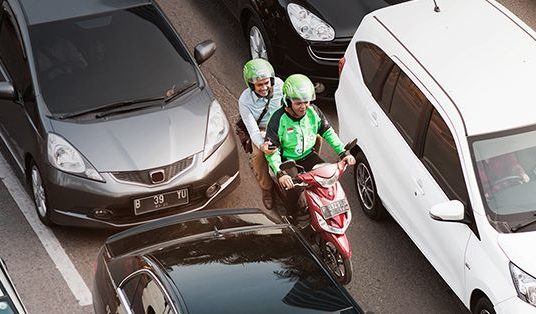Indonesia’s Go-Jek and Singapore’s Grab are two super-apps that have become essential in bringing convenience to the lives of Indonesians everyday, from providing on-demand means of transport to a plethora of food delivery options. But which of them has a bigger presence in Southeast Asia’s largest digital market?
Well, that depends on which of the two you ask, with each making some rather huge claims recently about their dominance over the other in Indonesia.
Go-Jek yesterday shared with the media data showing that its food delivery arm, Go-Food, is the leader in Indonesia’s app-based food delivery market based on data obtained from a study conducted by the Singapore branch of global data analytics firm Nielsen.
The main takeaway (no pun intended) from Go-Jek’s press conference is that Go-Food, according to the startup, has 75% of the market share in the online food delivery space in Indonesia.
“Our key to success in winning the hearts of customers is our understanding of those who love food,” Go-Jek chief food officer Catherine Hindra Sutjahyo said.
Nielsen’s study, which involved 1,000 respondents from seven major Indonesian cities, found that an increasing number of Indonesians have been using online food delivery services for their convenience as well as the plethora of promos often on offer by the service providers.
Nielsen also found that out of those who use more than one app for food delivery, 84% said they preferred Go-Food over its competitors.
Just a day earlier, Grab trumpeted a study by UK-based market research firm ABI Research that showed that the Singapore-based service provider controls 64% of Indonesia’s ride-hailing market.
“This lead in the market is the fruit of Grab’s success in becoming a super app that is able to meet the huge demands of the population other than for transportation,” a press release from ABI Research read, as picked up by Katadata.
According to ABI Research, Go-Jek — which began as a ride-hailing app before its transformation into a super app — has 35.3% of the ride-hailing market in Indonesia.
There may be more absurd numbers thrown about as the two decacorns (startups valued at more than US$10 billion) continue to flex their muscles to show who’s boss in Indonesia. But as long as their rivalry continues to bring innovations and low prices to the country and the region, then we’re all for it.
Related: Hit or miss? Go-Jek drops iconic logo for one that represents all of its services




